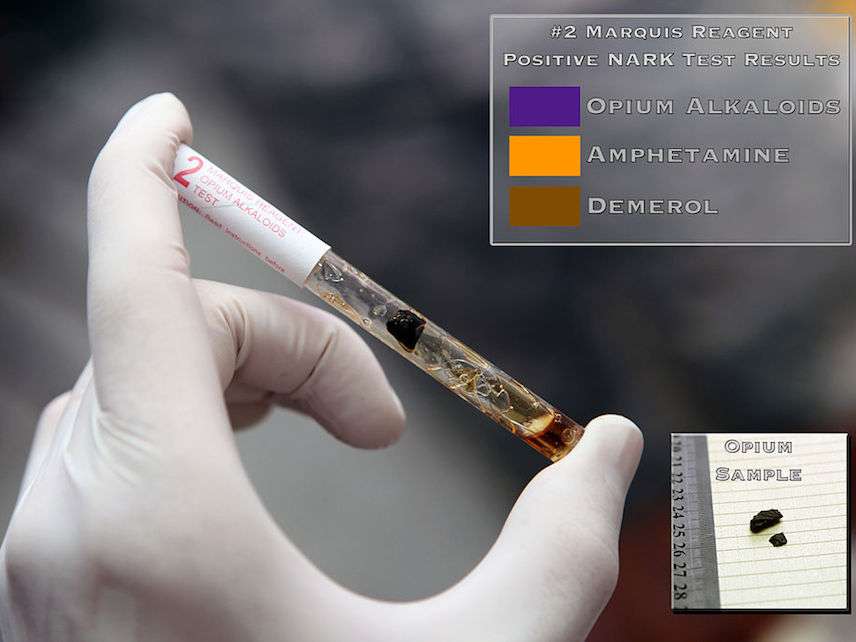New Study Finds Heroin Users Less Likely to Overdose If They Know What Drugs They're Actually Taking
Heroin user take smaller doses if they know they're also taking fentanyl.

Drug users are 10 times more likely to reduce their doses if they know the drug they're consuming contains fentanyl, according to a new study from Vancouver's supervised injection site. Designed as a safe place where drug users can get high under the supervision of medical professionals, Insite found that providing fentanyl test kits reduced the odds of an overdose by 25 percent.
According to the Globe and Mail, Insite offers a simple reagent test, in which a small amount of the drug is tested using a solution and a strip. Other reagent tests use just a solution and the drug itself, mixed together on a white surface. While reagent testing won't tell you every compound present, it's an effective way to identify substances you definitely don't want to take.
Reagent testing has been popular among synthetic drug users for two decades now, particularly the MDMA/ecstasy crowd. But there are limits, one of them being that reagent testing reveals presence, not dosing. And at least one reagent vendor says it's difficult to distinguish between fentanyl and other synthetic opioids, which could lead to false positives.
According to the data gathered by Insite, 1,000 different reagent tests revealed fentanyl in 83 percent of drugs thought to be heroin, 82 percent of drugs thought to be meth, and 40 percent of drugs thought to be cocaine. A recent Washington Post investigation found cases across the U.S. of cocaine contaminated with fentanyl, including 12 emergency department admissions at a Connecticut hospital in just eight hours.
Supervised injection sites and easy reagent testing are good ideas. But you know what would work even better? Letting people buy the drugs they want in a legal market where drug producers have an incentive to create safe products. Because as helpful as reagent testing is, it's not good enough just to know that you're taking what you think you're taking; it's also important to know how much you're taking. Britain is witnessing an increase in MDMA-related deaths. Is it because of contaminants? No, it's because the MDMA is more pure than ever, with larger doses in smaller packages.
Reagent testing won't tell you whether a given MDMA pill contains 25 mg or 100 mg, or whether your heroin contains a little fentanyl or a lot. That kind of knowledge requires a regulatory regime in which heroin (and MDMA and cocaine) is produced with the same attention to detail and accuracy as Tylenol. Or cannabis! As the marijuana market has turned from black to grey, consumers can now choose the ratio of THC to CBD and talk with retailers about optimal dosing based on their tolerance, experience, and desired effect.
In the short term, America needs harm reduction strategies like the kind offered at Incite. In the long term, we need to surrender to reality.


Show Comments (29)